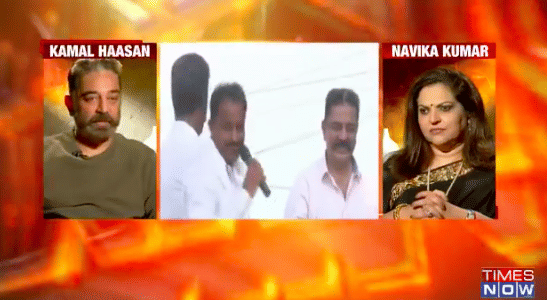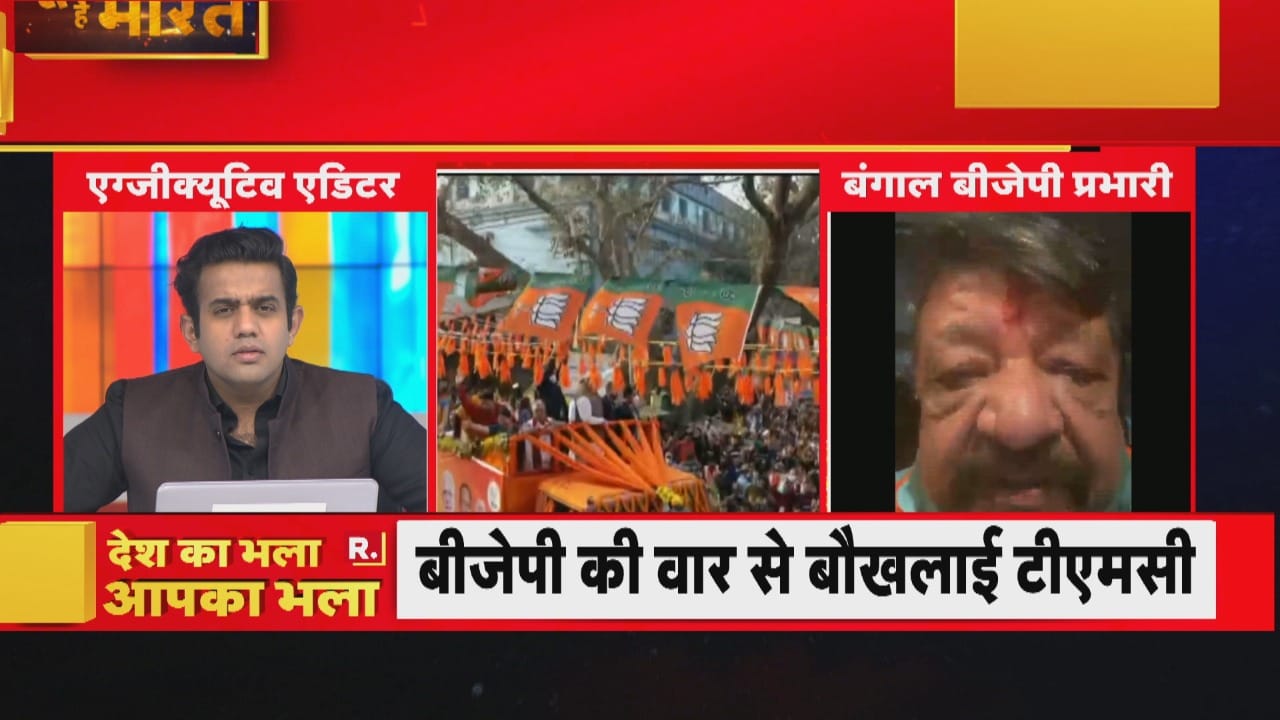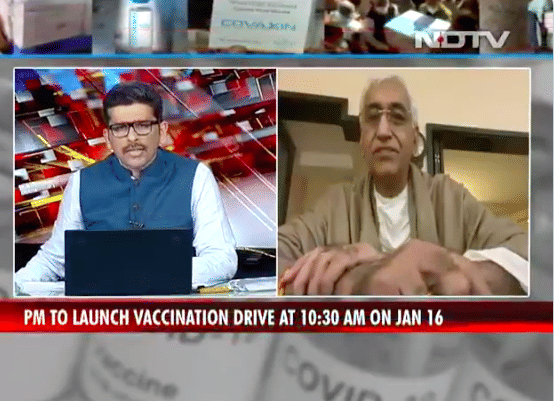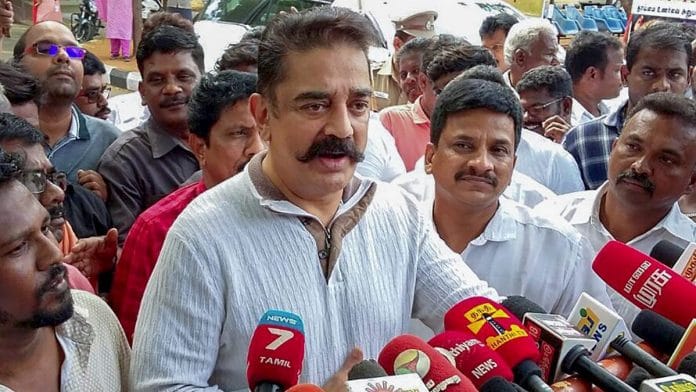New Delhi: Polls, polls, polls – on prime time.
With Tamil Nadu set to go to polls later this year, India Today’s Rajdeep Sardesai was concerned with the “battleground” in the state. Meanwhile, on Republic Bharat, West Bengal politics was the topic of discussion where 41 Trinamool Congress MLAs are reportedly in contact with the BJP to defect to the party.
Times Now’s Navika Kumar, however, was in conversation with actor-turned-politician Kamal Haasan.
Kumar was confused about introducing Haasan: “Actor, politician or should I call you big boss in Tamil Nadu where the election fever is already catching up with Rahul Gandhi in town and the BJP President in town. Is it really fever pitch already?”
Haasan replied, “Not yet, but it will get there. I think it will get there very soon.”
Kumar probed the matter of upcoming elections a little further, “You have been talking about bringing a change especially on the governance and the development front and of course you talk about fighting against corruption. Do you think a party like yours can really beat the election machinery of the established parties?”
“There’s AIADMK and DMK which have seen a face off in elections traditionally. But this election, we don’t have the star power, Jayalalithaa and Karunanidhi. Do you think that makes a space for a party like yours?” she asked.
Haasan didn’t mince words: “Since you use the word star and power in one brand, I am also tempted to use the same word. I have been a star and we are seeking power so that we can bring about the change we want in Tamil Nadu.”

On Republic Bharat, anchor Aishwarya Kapoor delved into West Bengal politics after BJP National General Secretary Kailash Vijaywargiya announced that 41 TMC MLAs wished to defect to his party.
Kapoor noted that Chief Minister Mamata Banerjee was embroiled in a two-front war ahead of Bengal elections — one with the Opposition and the other with her own party.
Now, what’s a Republic show without a good ol’ shouting match?
While TMC Minister Shubhankar Bhattacharya accused the BJP of absorbing just about anyone into the party, political analyst Shivam Tyagi called out Bhattacharya’s “holier-than-thou statement” and hit back saying TMC has also taken many people from Congress and the Left into its fold.

Amish Devgan, on News 18 India, also discussed West Bengal elections.
However, the debate derailed very quickly after TMC’s Rijju Datta accused the BJP of indulging in divisive, communal politics and said, “They won Gujarat through Godhra riots and 2019 General elections through Pulwama.”
This didn’t sit well with Devgan who went on to lecture Datta on why the Godhra riots happened. “A train was locked and put to fire, that’s what happened in Godhra!” Devgan shouted.
NDTV 24×7’s Sanket Upadhyay was in conversation with Chhattisgarh’s health minister T.S. Singh Deo on the vaccine rollout in the state.
Upadhyay asked, “Would you like to tell us about the preparation in your state for the inoculation drive?”
Deo was only too happy to oblige: , “Having received 32,300 vials, wherein each vial has 10 doses, we have vaccinations for 3,23,000 persons. Our registered front line workers are about 2,70,000. So, we have enough vaccine doses for the first round of health workers.”
He explained that the state had made arrangements for the vaccines to be lifted from the regional centre store in Raipur. Then, the vehicles will be taken to the district headquarters where they are going to be stored in cold chain facilities.
Upadhyay said that 99 vaccination centres have been identified so far in the state.
“Our target for day 1 is to vaccine 10,000 people,” said Deo.

It was a conspiracy fest on India TV. Anchor Rajat Sharma, in his ‘exclusive’ report, tried to find out what China wanted to hide from the WHO team investigating the origins of the Covid-19 virus.
Sharma said China’s restrictions on the WHO team make it amply clear that it doesn’t want the team to be successful in its endeavour,
“Will China let the WHO team visit the caves where the virus originated?” Sharma asked.
The channel was alluding to ancient caves in China’s southern Yunnan Province, which the Associated Press had earlier reported were closely guarded by authorities.
But the real question, according to Sharma, was — “Did the virus originate in these caves or was the virus made in a lab?”






